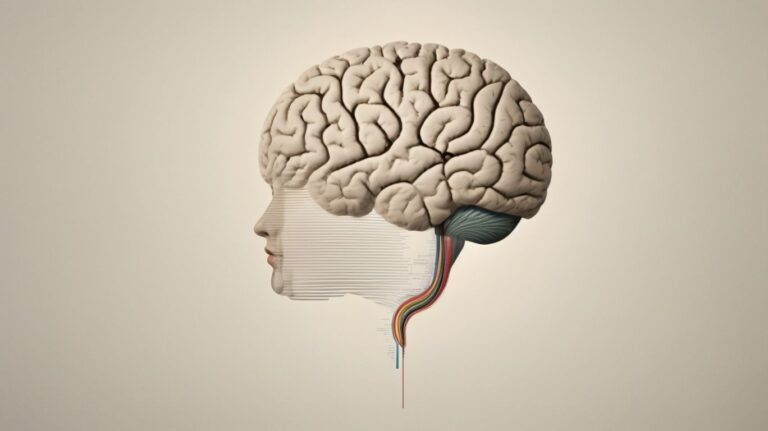If you’ve ever wondered about the role of a clinician in psychology, you’re in the right place. In this article, we’ll explore what it takes to become a clinician in psychology, from the necessary qualifications and responsibilities to the different specialties within the field.
We’ll also discuss the ethical considerations that clinicians must adhere to in their practice. Whether you’re considering a career in psychology or simply want to learn more about the profession, this article has you covered.
So, let’s dive in and explore the world of clinicians in psychology!
Contents
- 1 Key Takeaways:
- 2 What Is a Clinician in Psychology?
- 3 What Are the Qualifications of a Clinician in Psychology?
- 4 What Are the Responsibilities of a Clinician in Psychology?
- 5 What Are the Different Specialties of a Clinician in Psychology?
- 6 What Are the Ethical Considerations for a Clinician in Psychology?
- 7 Frequently Asked Questions
- 7.1 What is the role of a clinician in psychology?
- 7.2 What qualifications are needed to become a clinician in psychology?
- 7.3 What is the difference between a clinician and a therapist in psychology?
- 7.4 What types of mental health concerns do clinicians in psychology address?
- 7.5 How does a clinician in psychology approach treatment?
- 7.6 Can a clinician in psychology prescribe medication?
Key Takeaways:
- Clinicians in psychology are professionals trained to assess and treat mental health issues.
- Qualifications for clinicians include education, training, and certifications or licenses.
- Their responsibilities include assessments, treatment planning, therapy, and collaboration with other healthcare professionals.
What Is a Clinician in Psychology?
A clinician in psychology, often referred to as a clinical psychologist, is a professional dedicated to assessing and treating mental health disorders and psychological issues in individuals.
Clinical psychologists play a critical role in providing therapy, conducting psychological assessments, and engaging in research to better understand and address mental health challenges.
The scope of clinical psychology extends to various settings, including hospitals, mental health clinics, educational institutions, and private practices, where their expertise is utilized to assist individuals in coping with a wide range of psychological conditions.
Clinical psychologists employ psychological assessment tools and techniques to evaluate cognitive, emotional, and behavioral functioning, enabling them to formulate accurate diagnoses and treatment plans tailored to the unique needs of each client.
Through evidence-based treatments and therapies, they work towards enhancing the overall mental well-being of their clients, addressing issues such as depression, anxiety, trauma, and personality disorders.
What Are the Qualifications of a Clinician in Psychology?
The qualifications of a clinician in psychology encompass rigorous training programs and specialized education to address the complexities of mental health disorders and provide effective therapy for individuals.
Achieving these qualifications typically involves earning a doctoral degree in psychology, such as a Doctor of Psychology (Psy.D.) or a Doctor of Philosophy (Ph.D.) in Clinical Psychology.
Aspiring clinical psychologists are required to complete supervised clinical experience and internships, along with obtaining state licensure.
Specialized training in areas such as cognitive behavioral therapy, child and adolescent psychology, or substance abuse counseling is also crucial to meet the diverse needs of clients.
Expertise in diagnostics, evidence-based treatment modalities, and understanding cultural nuances is imperative for providing comprehensive mental health care.
What Education and Training is Required?
Becoming a clinical psychologist involves completing a comprehensive education and training program that focuses on mental health, therapy techniques, and psychological assessment for individuals in need.
To embark on this career path, one typically begins by obtaining a bachelor’s degree in psychology or a related field.
After completing the undergraduate program, aspiring clinical psychologists pursue a graduate degree, such as a Master of Science (MSc) or a Doctor of Philosophy (PhD) in Clinical Psychology.
Specialized programs and internships provide practical experience in conducting assessments, delivering interventions, and working with diverse populations.
These rigorous training opportunities help aspiring clinical psychologists develop the skills and knowledge necessary to support individuals facing various mental health challenges.
Along with academic qualifications, aspiring clinical psychologists must also satisfy licensing or certification requirements in their respective jurisdictions.
This process often involves completing supervised clinical hours, passing a licensure examination, and adhering to ethical standards in the field.
What Certifications and Licenses are Needed?
Clinical psychologists require specific certifications and licenses to practice professionally and address mental health disorders effectively, ensuring the highest standards of care for individuals in need of therapy.
These professionals typically need a doctoral degree in psychology, such as a Doctor of Psychology (Psy.D.) or a Doctor of Philosophy (Ph.D.) in Psychology, from an accredited institution. After completing their degree, they must obtain a state-issued license to practice.
This involves passing the Examination for Professional Practice in Psychology (EPPP) and fulfilling supervised clinical experience requirements.
The standards and licensing requirements are overseen by regulatory bodies such as the American Psychological Association (APA) and state-level licensing boards, which define and uphold the ethical and professional conduct expected from clinical psychologists.
Adhering to these standards is paramount for maintaining the trust and safety of clients seeking mental health support.
What Are the Responsibilities of a Clinician in Psychology?
The responsibilities of a clinician in psychology encompass conducting assessments, providing treatment, and offering therapeutic support to individuals dealing with mental health disorders and behavioral challenges.
Assessment techniques employed by clinical psychologists often include various standardized tests, interviews, and observational methods to gather comprehensive information about a client’s cognitive, emotional, and behavioral functioning.
This enables them to formulate accurate diagnoses and develop tailored treatment plans to address the specific needs of each individual.
Clinical psychologists utilize a wide range of treatment methodologies, such as cognitive-behavioral therapy, psychodynamic therapy, and mindfulness-based interventions, to facilitate positive changes in clients’ thoughts, emotions, and behaviors.
The impact of their work extends to influencing individual behaviors by promoting self-awareness, resilience, and adaptive coping strategies.
Through their expertise, clinical psychologists give the power to clients to navigate challenges, improve interpersonal relationships, and cultivate overall well-being.
They also play a vital role in advocating for mental health awareness and reducing stigma surrounding psychological disorders, contributing to the enhancement of societal attitudes and support systems for those in need.
Conducting Assessments and Evaluations
Conducting comprehensive assessments and evaluations is a fundamental aspect of a clinical psychologist’s role, enabling the understanding of mental health conditions and informing effective treatment strategies for individuals.
This process involves employing a variety of techniques, including interviews, standardized tests, and observation, to gather comprehensive information about an individual’s psychological functioning and symptoms.
Psychometric assessment tools such as the MMPI-2 and WAIS-IV are frequently utilized to measure specific aspects of psychological functioning, providing valuable insights into cognitive ability, personality traits, and emotional well-being.
Utilizing evidence-based assessment practices ensures that clinicians rely on validated measures and diagnostic criteria to accurately identify and understand mental health concerns.
By integrating research-supported methodologies and approaches, clinical psychologists can deliver more precise evaluations and offer targeted interventions to address an individual’s unique needs.
Creating Treatment Plans
Clinical psychologists are responsible for creating tailored treatment plans that address the specific mental health disorders and therapeutic needs of individuals, ensuring comprehensive and personalized care.
At our facility, we utilize a combination of diagnostic assessments and evidence-based interventions to develop personalized treatment plans for our clients.
These plans often incorporate therapeutic strategies such as cognitive-behavioral therapy, dialectical behavior therapy, and exposure therapy to address a range of mental health challenges.
We understand the importance of personalized care and take into account each individual’s unique circumstances, preferences, and background when creating their treatment plan. This ensures that our clients receive the most effective and tailored care possible.
Providing Therapy and Counseling Services
Offering therapy and counseling services is a core responsibility of clinical psychologists, providing crucial support and interventions to improve the mental health and well-being of individuals.
Clinical psychologists employ various therapeutic modalities and counseling techniques to address a wide range of mental health issues. These may include cognitive-behavioral therapy, psychodynamic therapy, and humanistic therapy, tailored to meet the unique needs of each individual.
By integrating evidence-based practices and personalized approaches, psychologists aim to facilitate positive changes in thought patterns, emotions, and behavior.
The impact of therapy and counseling can significantly enhance an individual’s coping skills, resilience, and overall quality of life.
Collaborating with Other Healthcare Professionals
Clinical psychologists collaborate with other healthcare professionals to ensure holistic care and comprehensive support for individuals dealing with mental health challenges, fostering interdisciplinary partnerships in therapeutic interventions.
Through shared care models, clinical psychologists work closely with psychiatrists, social workers, and primary care physicians to address the multifaceted aspects of mental health.
This collaborative approach allows for a more personalized treatment plan, considering the biological, psychological, and social factors that influence individual mental well-being.
Interdisciplinary teams leverage their diverse expertise to develop tailored interventions and evidence-based therapies, aiming to enhance the overall mental health outcomes for patients.
By integrating input from various healthcare professionals, clinical psychologists can offer a more comprehensive and effective approach to addressing mental health issues.
What Are the Different Specialties of a Clinician in Psychology?
Clinical psychologists specialize in various domains such as clinical, counseling, school, and forensic psychology, addressing distinct aspects of mental health, therapy, and behavioral interventions.
Clinical psychology, which encompasses a broad spectrum of subfields, plays a crucial role in assessing and treating diverse mental and emotional issues.
The clinical psychologist employs evidence-based therapeutic approaches to help individuals cope with challenges such as anxiety, depression, and trauma.
In the realm of counseling psychology, the focus lies on addressing interpersonal relationships, life transitions, and career development, offering support and guidance in navigating these areas.
School psychologists bring their expertise into educational settings, working with students, families, and educational staff to address behavioral, learning, and developmental concerns.
Furthermore, forensic psychologists apply their knowledge to legal matters, aiding in criminal investigations, offering expert testimony, and evaluating individuals involved in legal proceedings.
Clinical Psychologist
Clinical psychologists specialize in addressing mental health disorders, providing therapy and assessment services to individuals, and contributing to the understanding and treatment of psychological challenges.
Mental health professionals use different assessment methods, including interviews, psychological tests, and observation, to diagnose a variety of mental health conditions.
Their main role is to provide personalized therapy to help individuals manage and recover from psychological disorders.
They specialize in areas such as depression, anxiety, trauma, and substance abuse, and their goal is to promote positive mental health and enhance their clients’ overall quality of life.
Counseling Psychologist
Counseling psychologists specialize in providing therapeutic support, counseling services, and personalized interventions to individuals dealing with mental health challenges, focusing on holistic well-being and emotional health.
They play a crucial role in helping individuals navigate through issues such as anxiety, depression, trauma, and relationship challenges. This is done by employing various counseling techniques tailored to the specific needs of each client.
These techniques can include cognitive-behavioral therapy, mindfulness-based approaches, and interpersonal therapy.
Counseling psychologists are dedicated to fostering a safe and trusting environment. This allows clients to openly explore their emotions, thoughts, and behaviors. Ultimately, this leads to improved emotional well-being and a stronger sense of self-awareness.
School Psychologist
School psychologists specialize in addressing the mental health and educational needs of students, conducting assessments, providing therapy, and fostering positive mental well-being within educational settings.
School psychologists play a crucial role in collaborating with teachers, parents, and administrators to create a supportive environment that nurtures students’ holistic development.
They utilize various assessment techniques, such as behavioral observations, interviews, and standardized tests, to gain valuable insights into students’ cognitive and emotional functioning. This allows them to tailor interventions effectively.
Using evidence-based strategies, school psychologists address behavioral issues, learning disabilities, and emotional struggles, ultimately enhancing students’ overall well-being and academic success.
Forensic Psychologist
Forensic psychologists specialize in applying psychological principles and assessments within legal contexts, addressing mental health issues, and providing expert input on individual behaviors and psychological evaluations within legal proceedings.
Psychologists play a crucial role in the criminal justice system. They offer insights into offender behavior, competence to stand trial, and risk assessments through psychological evaluations and assessments.
These evaluations help determine the mental state and capacity of individuals involved in legal cases, aiding in the decision-making process for sentencing, parole, and rehabilitation programs.
What Are the Ethical Considerations for a Clinician in Psychology?
Clinical psychologists adhere to ethical standards encompassing confidentiality, informed consent, professional boundaries, and cultural competence, ensuring the highest level of ethical conduct in therapeutic practice and psychological assessments.
Regarding confidentiality, psychologists are duty-bound to safeguard client information, disclosing only as required by laws, professional standards, or with client consent.
Establishing informed consent involves providing clear information about the therapeutic process, potential risks, and benefits, ensuring clients have the autonomy to make informed decisions.
Moreover, cultural competence necessitates understanding diverse cultural backgrounds, beliefs, and practices, tailoring approaches to respect individual values.
Maintaining professional boundaries helps prevent potential harm and maintain the therapeutic relationship.
Confidentiality
Confidentiality is a cornerstone of ethical practice for clinical psychologists, ensuring the privacy and trust of individuals seeking therapy and mental health support.
Confidentiality is essential in creating a safe and secure environment for clients to freely express their thoughts and emotions. It also helps maintain the therapeutic relationship between psychologists and clients, fostering open communication and effective treatment.
Clinical psychologists are obligated by professional standards and legal requirements to safeguard sensitive information shared during therapy sessions, highlighting the significance of confidentiality in upholding the dignity and autonomy of individuals seeking mental health support.
Informed Consent
Informed consent is a vital ethical consideration in clinical psychology, ensuring individuals are fully informed and give the power toed in their decision-making regarding therapy, assessments, and mental health interventions.
When a clinician seeks informed consent, it signifies a commitment to transparency, respect for the client’s autonomy, and their right to make choices about their treatment and participation in research.
- Transparency: By providing all relevant information, informed consent promotes transparency in the therapeutic process.
- Respect: Informed consent respects the individual’s right to make decisions about their own mental health and well-being.
- Empowerment: By involving the individual in the decision-making process, informed consent give the power tos them to take an active role in their treatment.
This ethical principle not only safeguards individuals from potential harm but also encourages a collaborative and give the power toing dynamic between the psychologist and the client.
By ensuring individuals comprehend the nature of the services, potential risks, and alternative options, informed consent fosters a climate of mutual respect and trust, essential in the therapeutic relationship.
Boundaries and Dual Relationships
Maintaining professional boundaries and avoiding dual relationships are crucial ethical considerations for clinical psychologists, prioritizing the well-being and integrity of therapeutic practices and professional interactions.
When a psychologist establishes clear boundaries, it creates a safe space for the client, fostering trust and allowing them to openly explore their thoughts and emotions.
This ethical stance enhances the therapist-client relationship and minimizes the potential for exploitation or harm. It upholds the professional conduct expected within the field, ensuring that the focus remains on the client’s welfare rather than any personal interests or agendas.
Cultural Competence
Cultural competence is integral to ethical practice in clinical psychology, fostering sensitivity, understanding, and effective interventions for individuals from diverse cultural backgrounds, promoting inclusive and respectful therapeutic engagements.
Cultural competence plays a pivotal role in acknowledging and valuing the unique beliefs, customs, and traditions of different cultural groups. It ensures that therapy is tailored to meet the specific needs of each individual.
By incorporating cultural competence into their practice, psychologists can establish trust and rapport, which are crucial elements for successful therapeutic outcomes.
It also enables clinicians to recognize and address potential biases, prejudices, and stereotypes that could hinder the therapeutic process.
The integration of cultural competence contributes to a more informed and empathetic approach, enhancing the overall quality of care provided to diverse populations.
Frequently Asked Questions
What is the role of a clinician in psychology?
A clinician in psychology is a trained mental health professional who uses their expertise to assess, diagnose, and treat individuals with psychological disorders and mental health concerns.
What qualifications are needed to become a clinician in psychology?
To become a clinician in psychology, one must have a minimum of a master’s degree in psychology or a related field, and a license to practice as a mental health professional.
What is the difference between a clinician and a therapist in psychology?
A clinician in psychology typically has a higher level of education and training than a therapist, and may also be able to diagnose and treat mental health disorders. Therapists often focus on providing therapy and counseling services.
What types of mental health concerns do clinicians in psychology address?
Clinicians in psychology can address a wide range of mental health concerns, including anxiety, depression, bipolar disorder, personality disorders, and more. They may also specialize in specific areas such as child psychology or substance abuse.
How does a clinician in psychology approach treatment?
Clinicians in psychology use evidence-based practices and a variety of therapeutic techniques to help individuals improve their mental health. This may include talk therapy, cognitive-behavioral therapy, medication management, and more.
Can a clinician in psychology prescribe medication?
In some states, a clinician in psychology may have the ability to prescribe medication for mental health conditions. However, this varies depending on the state and their specific qualifications and training.




